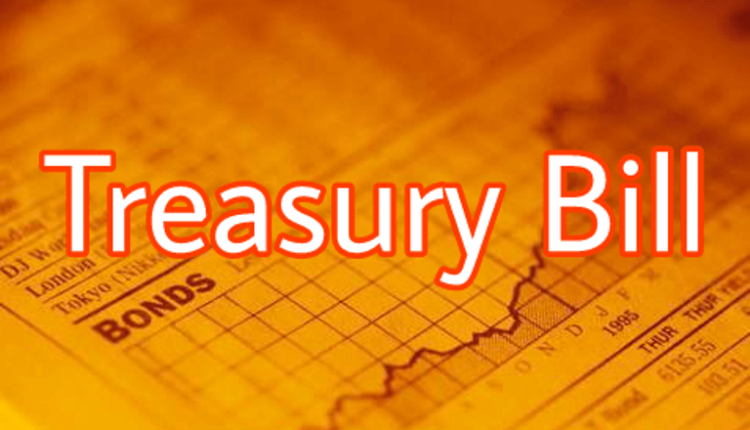In an exciting development, the Bank of Ghana (BoG) conducted a successful auction of 91, 182, and 364-day treasury bills on behalf of the government, resulting in an impressive GHS 3,746 million mobilized from eager investors.
This amount significantly surpassed the programmed auction target of GHS 3,266 million, indicating a robust demand for government debt securities.
The oversubscription of the short-term debt instruments, totaling GHS 480 million beyond the target, has sparked interest in the financial landscape. Notably, GHS 2,452 million and GHS 568 million in bids were tendered for the 91-day and 182-day bills, respectively.
The government accepted all bids for these short-term debt securities, underlining the confidence investors have in these instruments.
For the 364-day bill, GHS 726 million in bids were tendered, and once again, the government accepted all offers. This resounding success in the auction can be attributed to the allure of high-interest rates and the promise of near-positive returns on these debt instruments for investors.
Debt Instruments
The returns on the short-term debt instruments, particularly the 364-day bill boasting an interest rate of 33.4%, have inched closer to positive territory, standing only 1.8 percentage points away from reverting to positive returns.
This positive trend is further accentuated by the decline in headline inflation from 38.1% in September to 35.2% in November 2023, creating a favorable environment for investors seeking attractive yields.
As of the last auction, interest rates on the 91, 182, and 364-day T-Bills were recorded at 29.7%, 31.8%, and 33.4%, respectively. Surprisingly, these rates remained largely unchanged on a week-on-week basis, with only a marginal decline of 0.1% in the 91-day bill.
Meanwhile, the stability in interest rates adds another layer of appeal for investors, providing a sense of predictability in an otherwise dynamic financial market.
Looking ahead to the upcoming issuance scheduled for November 24, 2023, the government aims to secure an additional GHS 3,587 million in fresh funding through the issuance of 91-day, 182-day, and 364-day treasury bills.
This move signals the government’s proactive approach in addressing its short-term financing needs and underscores its confidence in the continued support from the investor community.
The successful T-Bill auction not only showcases investor confidence in the government’s fiscal policies but also reflects positively on the overall economic outlook. The government’s ability to exceed its targeted amount amid prevailing economic conditions demonstrates a resilient financial market and sets an optimistic tone for future debt issuances.
One of the key drivers behind the overwhelming demand for these T-Bills is the compelling interest rates offered. With rates standing at 29.7%, 31.8%, and 33.4% for the 91, 182, and 364-day bills respectively, investors are enticed by the prospect of substantial returns on their investments.
The 364-day bill, in particular, boasting an interest rate of 33.4%, has emerged as a standout option for investors seeking not only competitive yields but also relative stability in an unpredictable financial landscape.
Moreover, the government’s decision to accept all bids, including those for the 91, 182, and 364-day bills, speaks volumes about its commitment to meeting its financing needs.
This proactive approach not only ensures the government’s liquidity but also fosters a positive environment for investors, instilling confidence in the stability and reliability of the country’s financial markets.
The oversubscription of the T-Bill auction, driven by enticing interest rates and the promise of near-positive returns, paints a positive picture of Ghana’s financial landscape. Investors’ confidence in the government’s fiscal policies, coupled with the successful mobilization of funds, positions the country on a path of economic resilience.
The upcoming Issuance presents an opportunity for continued collaboration between the government and investors, fostering economic growth and stability in the face of ongoing global uncertainties.
As the financial landscape continues to evolve, the government’s proactive approach to meet its short-term financing needs positions it favorably in navigating the dynamic economic environment.


Comments are closed.